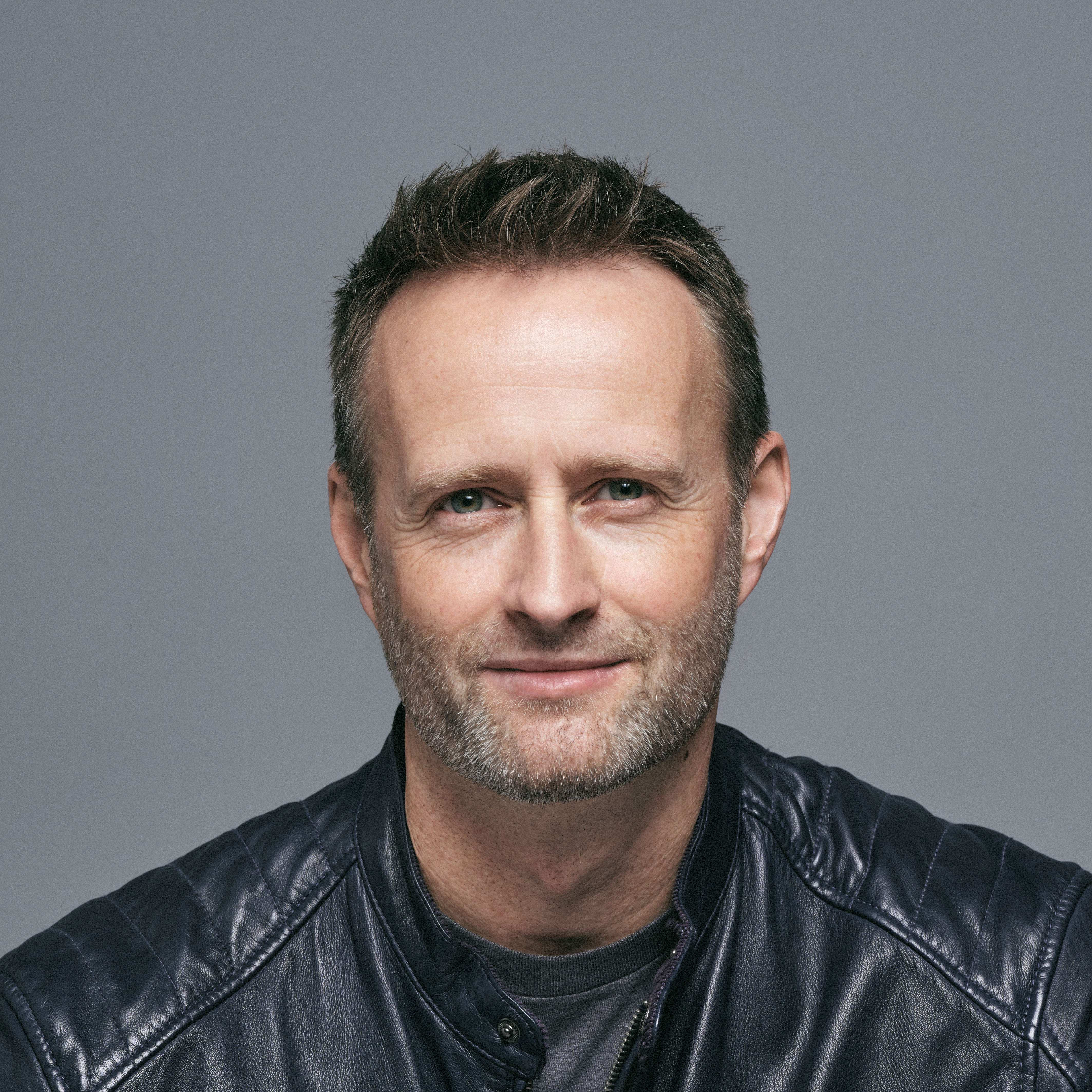Meet the INNOVEIT Budapest Speaker: Jared Schrieber

The INNOVEIT Weeks continue with EIT Alumni Connect, organised by our alumni in Budapest on 17 September. The EIT Alumni Community brings together an interdisciplinary and multicultural community of young professionals, comprising of graduates from the EIT’s education and business creation programmes.
EIT Alumni share a common vision for tackling societal challenges and creating positive impact through Europe’s largest innovation ecosystem. One of the speakers at EIT Alumni Connect will be Jared Schrieber, start-up advisor, angel investor, founder and president of the Revolution Robotics Foundation. Despite being from the US, Jared is based in Budapest, and he is dubbed as Hungary’s first superangel. We met him to talk about the work he does, his upcoming book, and his views on IP. This is what he had to say!
EIT: In an interview, you said you love working with big data. How would you explain what you do to an industry outsider?
Jared Schrieber: I really like data in all its shapes and forms. The best way to describe it to an outsider is we all have questions about things that need to be measured, things that need to be understood, questions that don’t have answers yet. Often the best way to get to those answers, or to better understand systems, processes, markets, and other things is through data and the ability to ask questions of data and to tease out the answers.
I like to think of myself as a private investigator, I’m doing sleuth detective work, research. Then when I find something, I interrogate it fully until I get to the truth in the answer that’s hidden within it. That’s what I do with data.
EIT: It seems like education is a recurring motif in your career. Be it the support for local schools through the Shoparoo mobile app, or your current work with the Revolution Robotics Foundation. Why do you think that education, and specifically robotics education is important?
Jared Schrieber: Look, I think fundamentally every single one of us, whether we’re an adult or a kid or someone in between like me, has a chance to be a better version of themselves. I think the way that we often get better is through learning and education as a primary vehicle by which people learn and create better versions of themselves. Obviously, that starts when we’re young in formal schooling, but also hopefully continues throughout life.
I just think when we’re all better versions of ourselves, we all impact other people every day, and there’s kind of a network effect that exponentially grows as a result. We can just live in a better, kinder, happier, better functioning world, when all of us just continue to try and make ourselves better. And again, education is a key way to do that.
I think robotics education is particularly amazing in this regard. Not only because it really inspires kids and gets them energised to learn and apply science, engineering, technology and mathematics skills in creative and innovative ways, which is really the highest form of learning, when you can apply something you’ve learned creatively. Robotics really allows for that.
'Collaborative problem solving, I think is incredibly valuable in any profession: planning and problem solving, setting goals, breaking up work among team members, getting it to come back together and actually work resolving conflict.'
But I think the other thing I’ve seen through competitive robotics is other life skills that form. Kids have to be able to articulate a vision that they have in their head to their team members and kind of convince and influence them that this is the right way. Those other kids have to be able to interpret what this kid is envisioning in their head and see it for themselves. So that’s a skill developed.
You have to be able to give feedback constructively to someone. You have to be willing to take feedback constructively that maybe your idea isn’t the best, and here’s why. Collaborative problem solving, I think is incredibly valuable in any profession: planning and problem solving, setting goals, breaking up work among team members, getting it to come back together and actually work resolving conflict.
These are things that come from educational and competitive robotics that I think don’t come from most forms of traditional education or even sports teams.
EIT: You are also a start-up advisor and angel investor. What kind of start-ups excite you the most? And how do you choose which start-ups you invest in?
Jared Schrieber: I think my views on this have really changed over time. What I find now that I get most excited about is when I hear about a problem to be solved or a business model or something. I imagine it scaling into being really successful and large, and I think to myself: Is the world a better place when that happens? Is this a world I’m more excited to live in? Is that going to benefit a lot of people and are they going to be excited about it? When that happens, I think I get really, really excited about being a part of it.
"This is a really amazing application of artificial intelligence to impact human lives and to radically change how people are treated for diseases such as cancer."
For example, one of my more recent ones is Genomate. It’s out of Hungary and the US, and they do cancer research to understand how our genetic makeup is driving cancer based on the combinations of mutations in the genetics. What is the best possible treatment for a patient that gives the highest opportunity for a successful outcome? This is a really amazing application of artificial intelligence to impact human lives and to radically change how people are treated for diseases such as cancer. I’m really excited to be a part of that one.
EIT: And what’s the craziest start-up you have ever invested in?
Jared Schrieber: Oh, craziest. I’ll tell you one that I love right now. Two very young Hungarian founders have just launched their Indiegogo campaign for Shrooly. It is a mushroom growing device, kind of like a coffeemaker. You put in the pod, and over the next two weeks, it grows beautiful mushrooms for cuisine, for functional performance, for other kinds of things. They’re fresh, they’re always available to you. I think they’ve got an amazing product, a great brand, and I’m really excited for these guys.
EIT: You also have a book coming out titled Breakout Brands. Without sharing any spoilers from the book, could you tell us what the secret of brand growth is?
Jared Schrieber: I studied 25 000 consumer brands in the US over a five-year period, found the breakout winners and compared them to brands in the same product categories that declined, and used all the available data to figure out how they did it. I think I’ll tell you what doesn’t have to be part of the equation: advertising. I think everybody expects that the key to growth is to just pump more and more into advertising and more successful ad campaigns. Many of the breakout winners who are at the very, very top of these 25 000 brands did not use advertising to grow.
They did a better job of creating better products that created word of mouth and viral forces, product-led growth. They did a better job of selling to retailers, to get more retailers to carry their products.
"I struggle with IP protection, because I’m no longer convinced personally that it’s actually better for the world and better for all of us."
EIT: One of the panels at EIT Alumni Connect deals with intellectual property. During your years at InfoScout, you acquired some patents, and we also noticed that the title of your upcoming book is trademarked. Is IP protection important in the start-up world?
Jared Schrieber: It’s a really good question and something I struggle with myself, because quite frankly, I think for start-ups and for their investors, they’re quite valuable. They’re valuable assets to have. They increase the moat of protection.
At the same time, I struggle with IP protection, because I’m no longer convinced personally that it’s actually better for the world and better for all of us. I think they lock in moats around existing monopolies and large incumbents, and do not facilitate innovation in a way that can really help humanity at the rate that we’re capable of continuously improving products and services.
EIT: And do you have any thoughts on how these obstacles in terms of IP can be circumvented?
Jared Schrieber: Well, I think start-ups need to ask themselves: is having a patent or a trademark really core to having a moat for their business? Or is actually their success going to depend a lot more on their ability to execute in the market? Almost always it’s their ability to execute versus the protection of a patent.
"Just meeting founders who have so much knowledge, passion, and energy for solving these problems, I just get really invigorated by that."
EIT: What are you looking forward to during the EIT Alumni Connect event in Budapest?
Jared Schrieber: One of the things I love about being an angel investor is I get exposed to all kinds of new business models and opportunities, problems that are out there and solution potential that I had no idea existed. Just meeting founders who have so much knowledge, passion, and energy for solving these problems, I just get really invigorated by that.
Want to hear Jared Schrieber live at EIT Alumni Connect?
Join the event in person or online and become a part of the EIT community!



 Share this page
Share this page


